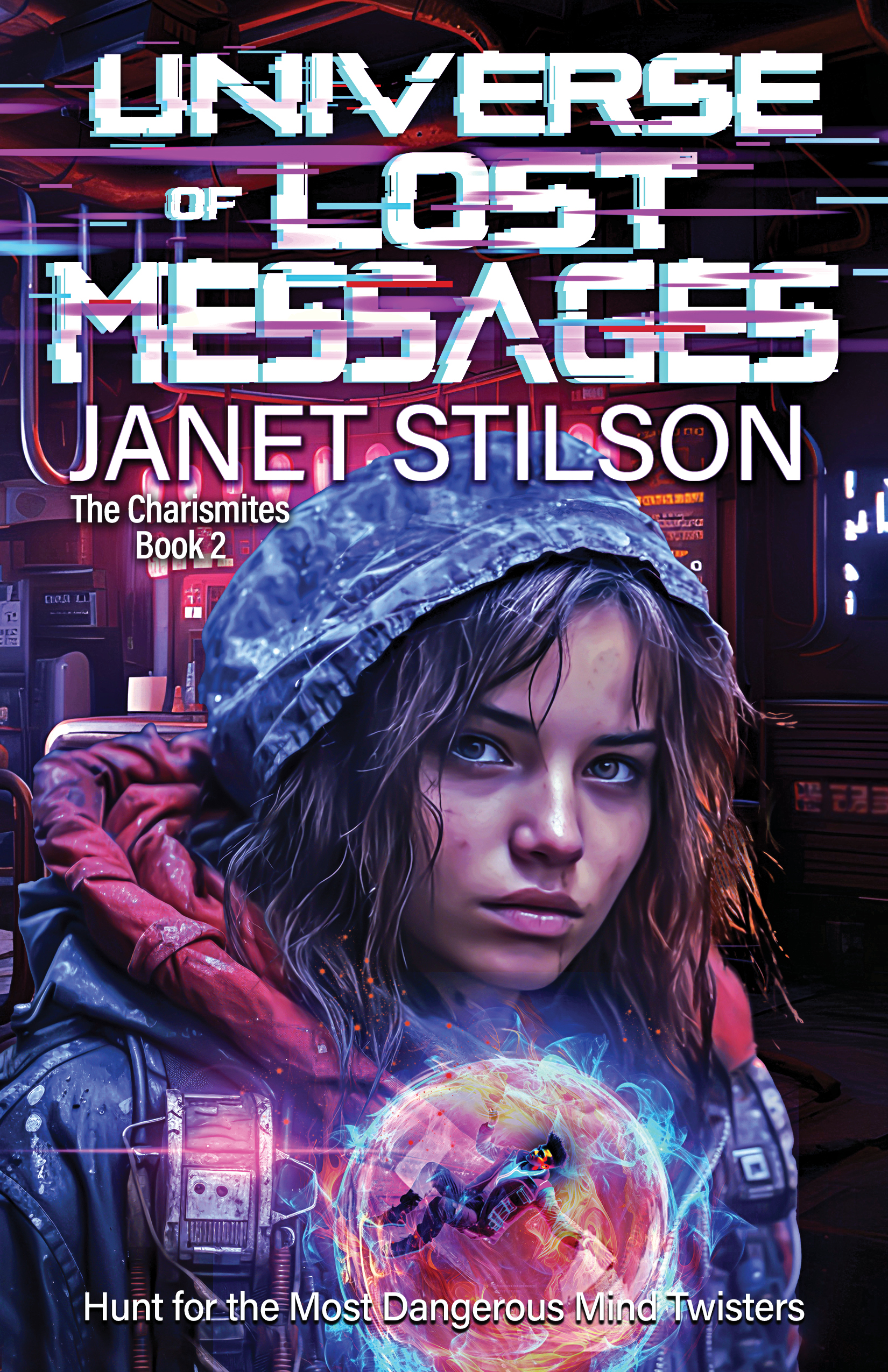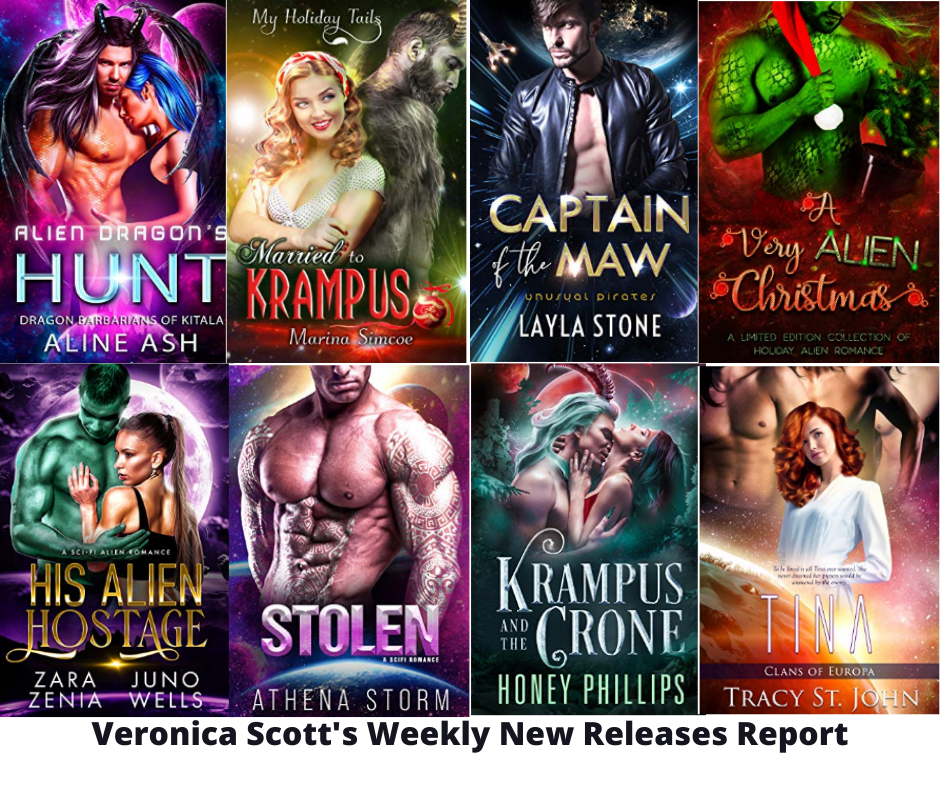What if your child has extraordinary powers of charisma and can get people to do almost anything? What happens if the child is abducted?
Izzie and Tristan were never mere humans. They are Charismites, with almost god-like powers of magnetism. They couldn’t be more different. Izzie is a reckless, playful megastar whose popularity far exceeds that of any other celebrity. Tristan is a secluded nature lover, almost completely unknown to anyone beyond a protective biodome.
Their worlds explode when they are abducted by The Fist, a power-hungry political group with a master plan to control the hearts and minds of all people on Earth and satellite colonies beyond.
But the plan only works with the help of Charismites.
Tristan and Izzie’s families will do anything to find them. But they don’t have much to go on until a feisty, street-wise teen, Cheeta, discovers clues about the Charismites within a strange metaverse filled with millions of missing messages. But will they actually find them? And can they destroy The Fist before they take over the planet?
Filled with an eclectic cast of characters, a slow-burn romance, humor, and wonderful descriptions of a sensual and sometimes violent world, UNIVERSE OF LOST MESSAGES is a gripping new sci-fi thriller, filled with political intrigue.

Editor’s Note: This excerpt from Universe of Lost Messages is the first part of Chapter 2, featuring the voice of the street-wise, feisty Cheeta Lucida LaVera. It’s been slightly edited.
Text copyright © 2024 by Janet Stilson, Published by Dragon Moon Press
The first time I got sent into the Universe of Lost Messages, it didn’t make sense. I thought somebody had hacked my tech and sent me into some stupid game metaverse. There I was, free-floating in my old shorts and T-shirt in a kind of space-type place. But it was the color of a ripe papaya.
The orange went on and on, like it didn’t have no end. Instead of stars and planets, there were these bubbles. Thousands, maybe millions. Up close, they were the size of soccer balls, and way off in the distance they were these sparkling dots, small as a grain of sand. The surface of the bubbles had colors glinting off them. And I could see a face in each one, jabbering away, although their voices were faint.
“Hey! Is this a joke? What is this place?” I shouted. There wasn’t any answer, just the whispering voices.
Somehow, I knew to hold out a hand, and one of the bubbles floated right into it. I squeezed it. Just had to. There was a little pop, and out of it leaped a full-sized hologram of a woman with tight curls rolled like cigars and a splat of brown stuff on her face. She was holding a dirty white Pomeranian with black eyes and a long pink tongue.
“Jonas! Jonas!” she screeched. “Is this your idea of a joke? You dipped Frolly in the mud pond, didn’t you?” The holo disappeared inside the bubble, then took off.
Another one came toward me. When I squeezed it a little, there was another pop, and a slick man in a cowboy hat sprang out. He was standing in a desert. “Act now and act fast! You can get a sweet little home in Green Dream Estates for only …”
I tossed his bubble away and opened another, then another. Holo messages were one thing. They’d been around a long time. But I’d never seen them in bubbles. There were little readouts beside each one showing when they were sent. They all seemed to be about six weeks old.
“Excuse me,” I yelled. “What’s with you bubbleheads?”
Nothing.
“Is somebody going to tell me how to get out of here? Because Cheeta Lucida LaVera don’t take no …”
There was a rumbling, and a mountain of bubbles appeared, way in the distance. It swooped toward me, and the spheres inside it grew larger and larger, voices calling “Cheeta, Cheeta!” I tumbled among them, flailing my arms around, trying to get out of that huge cluster, breaking bubbles left and right. The people that popped out shouted so loud I thought my ear drums would split.
Finally, I came out the other side, panting like crazy. Thought I was in the clear until this one bubble came right at me. Its light was piercing at first, but then softened enough for me to see a man inside, whispering “Cheeta Lucida LaVera.”
At first, I didn’t recognize him. But then I did. Someone I loved—that I’d seen almost every day for a bunch of years until he passed: Senator Miles Morelli. His face was so changed, so haggard and scared. His hair had always been so polished, but in the holo it was all frizzled out. And if the readout was true, he’d sent the message two days after everybody thought he’d been killed.
I was too messed up to even know if I screamed.
# # #
When I think about what happened just before the senator’s death was reported, I always come back to a song. I never would have heard it if Miles hadn’t made a special request.
I’d slept long and hard the night before. Heavy feet crawling across my belly finally woke me up. My two-foot-long Fire Salamander, all black with orange squiggles, looked down on me hungrily with these little black-ball eyes.
“LiZee, did you spring out again?!” The little princess glug-glugged as I carried her over to the big tank and set her inside with some worms.
I triggered the mobile unit in my contact lens to pull up a holographic screen and was shocked to find out it was almost 9:30. “Why didn’t your alarm go off, estupido?” I asked the screen.
“Because you forgot to set me, estupido.” Cheeky bish. “You had a message from the senator.”
“Wha?”
“You’re to report to his residence this morning, not the main office.”
“Uh, okay.” It was weird, but there was no time to think about that. I raced around my tiny studio getting ready, barely avoiding the jumble of furniture I’d found on the street. Gulped some leftover coffee. Threw on a black suit. Ran fingers through my dark curls that were thick as a goddamned shrub, willing them to look respectable.
When I slammed out the door, a paper fell on the hall floor. Frickin’ landlord’s eviction notice. I wadded it up and ran down the stairs, out into the stew of people on the streets of Flushing, Queens.
Fifteen minutes later I was on the subway. There were a bunch of shabby, tired buildings all along the track, but when we crossed the East River going straight into Manhattan, all these gleaming spires cut through the clouds. It was one of the most expensive places to live on planet Earth.
Three trains later, I made it to Sugar Hill, a section of Harlem. Gives you sort of a time-warp feel: four-story brownstones from a couple of centuries ago lining hilly streets. Old money Elites live there, the kind that gets off on an antique vibe.
The Morelli mansion was a lot bigger than most of them along Convent Avenue, separated from the pack by a wide lawn and gardens. I was almost up to the front walk when a blur shot out of the side door and across the garden. Jesucristo! That was a humanoid! Diana! The one that the senator and I had put together from a Build-a-Bot kit about a year before.
It looked like a replica of a buff, red-headed woman in a black body suit. Miles had used all his insider-government resources to give it a deep-data computational system that left most other bots in the dust. Why the hell was it running off that way? I started to yell “Hey!” but before the word got out of my mouth, Diana leaped over a high wall and disappeared. I messaged it like crazy, asking where the hell it was going. But I kept getting an error signal on my mobile.
“Mierda!” That was super weird. I tried again and again, but nothing.
Two plain-clothed Secret Service peeps were at the front door. They were drinking their morning café con leche and talking shit, backs turned on the garden area, so they didn’t see nothing. But even so, something inside told me to keep my boca shut.
I shot them some holas as a four-armed bot, Petunia, opened the door. It was like a big ol’ middle-aged mother type that pretty much ran everything in the mansion—a chef, housecleaner, healthcare worker all rolled into one. As soon as it let me into the huge entrance room, I could see Miles walking toward us from far down the hallway, distinguished as ever in a sharp-angled blue suit. But why was he was carrying a suitcase? Things were weirder on top of weirder.
His jaw was set hard, so determined, like something was pissing him off. But he tried for a smile when he saw me. “Hello, Mutt!” That’s what he called me. Sounded bad, but out of his mouth, it was like “love,” or “sweetie pie,” without the sicky sugar.
“Hey, Miles. Diana just—”
“Yes.” He said it in a way that told me not to ask more. “Petunia, is the car out front?”
“Yes, sir. Just coming around.”
“Great.” The troubles on Miles’ face seemed to blow away as he took me in with a deep, honest interest. He had this passion and kindness that made all the people around him reach for big goals. It must have been one of the reasons he’d been reelected three times to the Senate. “I’ll tell you about Diana later.”
“Sure, no prob. But if you’re going someplace else, how come you want me here?”
The worried darkness came back over him. “I don’t know how long I’ll be away, and I can’t leave Nadia alone,” he said, speaking of his wife. “Just be here for her if she needs someone to talk to. And don’t upset her.”
I smirked. “You think that’s possible?”
Miles tweaked my cheek and gave me a laughing smile. “Set the intention and someday it just might come true. You’re really more alike than you know.”
Me and her? He had to be clowning me. I wanted to call him on that, but he was moving toward the front door real fast. I had to pick my shots. “Um, Senator. When you get back. There’s something I want to talk about.”
He stopped in his tracks and turned back, eyes intent on me once again. “What is it?”
“Well, um. I like being your assistant and all. But I really want to go to school. Maybe Rutgers out in Jersey. There’s this robotics program. Maybe if I took it, I could help you. At a higher level.”
Miles dropped his suitcase, like I’d told him that God just gave me a high five or something.
“Are you okay?” Petunia asked him.
“I’ve been waiting for this girl to say something like that for ages,” he said. “When do you want to start?”
“The fall. But. Well, um. I know you told me you’d help with tuition when I’m ready, but I’m kind of in the hole when it comes to living expenses.”
“Cheeta Lucida. When are you going to learn how to budget?”
“I can work longer hours. Maybe get another job. I’m not asking for you to pay the whole nut. Just help me—”
“Pish posh. I’ll take care of it. Just remember, watch over Nadia, okay?”
“Sure.”
Then he was gone. Petunia led me down a hallway lined with holos of all this museum-quality artistic work. “Better watch out,” it said. “That smile of yours is so big it’ll crack your face in two.”
“Yeah, I know. What’s up with the Nadia thingy?”
“I don’t know, but maybe it has something to do with this.” Petunia opened a door that led to this room they called a salon. It looked like somebody had tried to destroy the place. Wine splats on the white stuffed furniture, broken glass and china everywhere. At least all the art on the walls was okay. “Holy crap,” I said. “Who fired the first shot?”
“Her, of course.”
“Wow.” What the hell was that about?
We went past another stuffy salon, then Miles’ huge study, which was filled with ancient books. At the very back of the first floor next to the kitchen was this tiny office where I was supposed to work. It was dank and sad looking, with piles of paper files that looked about a hundred years old and an office air screen. I’d only been there once before.
Petunia looked about as sympathetic as a bot could be. “Would you like a pot of tea?”
“Nah. I’ll be okay.”
Before long, I had shifted into work mode, pouring through the senator’s database for a twelve-year-old tax return that had gone missing. It was such a lonely, cold place. How I missed his noisy headquarters on Third Avenue—always filled with shouts, cracked jokes and the occasional argument between staff peeps who were constantly coming and going, pumped up with passion for the various pieces of legislation Miles was promoting, the speeches he had yet to deliver on the Senate floor, the next election campaign. Didn’t matter if all I did was this kind of low-level clerical stuff. The scene was da bomb, to me.
My mind kept coming back to what Miles had said about me and his wife. What the hell was he talking about? How could I ever be like Nadia Morelli? She was a famous opera star, what they call a contralto—a real big-time deal with the New York Metropolitan Opera. At least she had been. Now she was like some kind of exotic flower that was bruised and torn up, voice ruined by glottic cancer.
After they’d got the evil shit out of Nadia, she’d gone through a lot of plastic surgery in hopes of getting back the voice that made her famous. But it was impossible. I’d read this report once about the way she sang before. Frickin’ critic called it “velvet, cascading peels of sound.” Thought he was a poet or something.
I was about as far from being like Nadia as anything. Most people thought of me as one of Miles’ poverty projects. Sometimes senators did shit for Chav people—the lowest of the low on the social totem pole. It was supposed to be goodwill gestures, to prove to the public they had a kind heart. But with Miles, it was genuine. He just did stuff like that.
Nadia sure didn’t. As far as she was concerned, I was worthless as a dirty rag. She didn’t have no right. Sure, I made it through two freezing winters in a smelly old coat living beneath a bridge in Central Park with my mama. I learned how to give people this “don’t fuck with me” vibe when I walked down tough streets. But after Miles got hold of me, he kind of softened my edges. When Mama passed, he set me up with some foster parents, made sure I got into grade school—and eventually, the top tech high school in New York. Plus, he gave me the assistant gig in his office when I turned fifteen. That was two years ago.
I was way into some mental bishing about that sorry-ass office when a journalist called Miles’ work number, and I answered. The woman that popped up on the holographic screen had this pinched-up face and a nasal voice. “I’d like to speak with Nadia Morelli’s assistant, please.”
“You got the wrong number, lady.”
“I know that this is Senator Morelli’s number, but I don’t know how else to get through to her. Can you help? I want to do a warm, uplifting story.” She struck a pose, like she was delivering a news spot. “One year after the great opera star Nadia Morelli disappeared from the spotlight—”
A hand swiped the air in front of the screen. The journalist disappeared. I swiveled around and faced Nadia. A blue velvet bathrobe with fur trim barely covered her fat belly. Her curly, acid-yellow hair was in snarls, surrounding a thick face and neck.
“What a delicious invitation,” she said in a voice full of cut glass. “I’d just love to be on her freak show.”
“Hey. That’s not going to happen. Nobody’s going to hear you, see you, nothing you don’t want.”
Nadia softened but couldn’t hide a sharp look at my messed-up hair and long face. “Thank you.”
“Sure.”
“I’m surprised you’re working here,” she said politely.
I shrugged. “Just doing what the senator says.”
“He always tells you things. Where’s he going?”
“Didn’t say.”
“Who’s he seeing?”
“Dunno.”
“Secret rendezvous with that humanoid? Miles’ little sex toy.” Her cheeks flamed with humiliation, fishing for intel about her husband from a Chav assistant she couldn’t stand. It was pathetic.
“I don’t know nothing about no sex toy.” I swiveled back around and started going through files on the air screen.
“If you’re going to lie, at least use proper English. You don’t know anything.”
It took all my control not to snap back. She went out and slammed the office door behind her. I tried to make the sting fade, but she pissed me off too much. After about an hour, I went to get some coffee in the kitchen.
Music came toward me, down the hall. The voices of a man and woman kind of laced around each other. That’s the only way to put it. Each note seemed so tender, kind of warm and delicate. Later, I learned the song was “Parigi, o Cara” from Verdi’s La Traviata. But right then, all I knew was that I needed to get closer, really hear it. I passed Miles’ office, then came to the messed-up salon. The music was coming from inside.
Peering around the door, I saw the holo recording of a curvy woman brimming with ecstasy as she sang with a barrel-chested tenor. Then I realized: it was Nadia, from before I’d ever known her.
The real Nadia was standing before the holo. Her ugly face was lit up. She was reliving that night in the Metropolitan Opera. The audience was washing love back toward her younger self as she sang and sang, like her heart had fluttered out of her, touching each one of them.
I was shaken into a new sense of who and what she was. Sure, I’d known Nadia was famous. But seeing and hearing why was something else. All my resentment melted into pity, seeing how far she had fallen.
Nadia turned quickly and saw me in the doorway. Waving away the holo, she snarled, “How dare you spy me?”
Spy? It was ridic. “Puta de madre.” I walked away from her, down the hall.
“What did you just say?”
“I said, if you didn’t want people to pay attention, you shouldn’t play that music so loud.”
Her fury narrowed down to a sharp point. “Just because Miles has made you his little charity case doesn’t mean you can walk around here saying things like you’re a member of this family.”
“Go stuff yourself,” I mumbled under my breath.
“WHAT?”
“Nothin’”
“Get out. Get out!” she screeched. “You’re fired.”
“You can’t do that! I work for Miles.”
“If I say you’re fired, you’re bloody well fired! Petunia! Petunia!” The bot whisked in and took my arm.
***
 On one hand, Janet Stilson is a journalist. On the other, she writes scripts, novels and short stories that largely fall in the grounded sci-fi and fantasy genres and illuminate the human condition in provocative ways.
On one hand, Janet Stilson is a journalist. On the other, she writes scripts, novels and short stories that largely fall in the grounded sci-fi and fantasy genres and illuminate the human condition in provocative ways.
Janet’s novels, “The Juice” and “Universe of Lost Messages,” are dystopian, cyberpunk tales that were inspired by her work as an editor and reporter, interviewing execs at big media companies about where the heck we’re all going. “Juice” was published by Dragon Moon Press on Feb. 9, 2021, and “Universe” is scheduled for release May 14, 2024. Her short story “Imaginary Children” was published by Asimov’s magazine in July 2020.
Based on her film script “Jaguar Trail,” Janet was selected to be part of the Writers Lab for Women, which is funded by Meryl Streep and Nicole Kidman. Stowe Story Labs also selected “Jaguar” to be part of its intensive mentorship program in 2018.
As a journalist, Janet got her “chops” at the storied showbiz bible “Variety.” She has traveled the world chronicling the business of media and entertainment. It afforded her many busman’s holidays in places like Shanghai and Paris, for which she is forever grateful.
Janet has also worked as a consultant and researcher, specializing in the business of media. Separately and in conjunction with others, she has provided services to such clients as Liberty Media, Microsoft Corp., Oxygen, Discovery Communications and MTV Networks.
She has been an artist in residence at Dorland, a retreat in Southern California; the Julia and David White Artists’ Colony in Costa Rica; Odysseys, also in Costa Rica, and La Muse in southern France.
Janet lives in New York City’s Riverdale area. It’s a world away from her childhood home in a gorgeous upstate New York town called Franklin. Cars pass through Franklin in almost the blink of an eye, and she hopes it stays that way.










